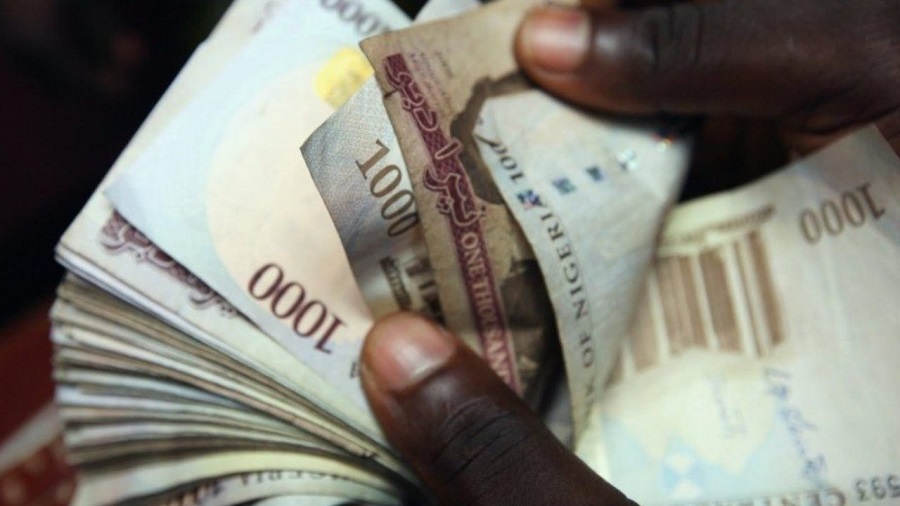Following the ruling of the Supreme Court, yesterday, to temporarily stop the CBN from banning the use of the old N200, N500, and N1,000 banknotes, some legal experts have indicated that the ruling may not be adhered to.
Among other reasons, they noted that the Supreme Court lacks the jurisdiction to rule on such a matter, and may have overstepped its bounds.
One of these legal experts is Professor Sam Amadi, a law lecturer at Baze University in Abuja. He said that by the ruling, the Supreme Court has taken over the job of the monetary authority – overruling the Central Bank on a national issue.
The bigger issue: The professor said the bigger issue is that the situation shows a very unstable macroeconomic environment because the governors who filed the suit tried to use politics to try to get away with their position, then after they failed, resorted to using the court to achieve their purpose.
He noted that the position of the Supreme Court may confuse because if the Central Bank does not produce or print more money, the people will not be able to exchange the naira notes. He added that if the Central Bank decides to say nothing, nobody will accept the old currency.
So, the court has exposed itself to indignity and possible disobedience because if the CBN decides to say nothing people may refuse to accept the old currency.
- “I think it’s both an unwise order and a misapplication of the Supreme Court’s power,” he said.
Jurisprudence point of view: He stated that from a jurisprudence point of view, the Supreme Court should not have been contacted on the issue in the first place; instead, it should have been the Federal High Court. He further stated:
- “If you consider the allegation put forward by the three state governors, that there is hardship, states have no responsibility to control hardship on the citizens. So, there is no reason the Supreme Court should have taken such a decision without alleging a violation of rights, or contravention of the law. They are saying that the issue is causing anarchy – that is not supposed to be an issue between the federal and state governments. So, they should have thrown out the case.”
He went on to say that the Supreme Court showed a lack of understanding about regulatory issues.
- “They would have said, ‘CBN, give them direction on managing the extension. Now, they have used interim order to upend the previous ruling, and an order, which should have ended on the 10th, was extended to the 15th of this month without even hearing from the Central Bank. In my view, there is no dispute between the federal government and states to warrant the interim injunction of the Supreme Court. A matter over currency should be handled by the Federal High Court,’” he said
- He further questioned, “Is it proper for the Supreme Court to hear at the back of the Central Bank, a policy which had been taken to the House of Assembly and the governor said no, a policy that had been taken to the Presidency and the president said no; you now give an injunction, vacating, actually, the order of the Central Bank and saying on the 15th, whereas the CBN says 10th?
- “There are going to be issued. If the central Bank refuses to release new naira notes that order will be useless. If the central bank and the banks do not take further steps, that exparte order is useless. The Supreme Court should have first invited the CBN to explain why that interim order shouldn’t be kept because it has an impact on the CBN policy. Monetary policies that have an impact on the supply chain are not something you can make order hastily.” He said the order is manifestly difficult to execute.
Professor of law at Adeleke University, Tayo Bello, said the Supreme Court has not given a judgment; it has only given an interim order, pending the suit. He said aside from the filing of the suit, the defendant did not appear in court. Bello said,
- “You cannot elongate and prolong an elongated problem. If at the end of the day, the naira swap exercise is suspended, you wipe out any gains made and create more problems that cannot be imagined now.”
He said what the Supreme Court has done is akin to eroding the autonomy of the CBN, which is an independent body established by an act. He said he thinks that the whole exercise should finalize itself.
A legal practitioner, who pled anonymity, told Nairametrics that in a case like this, the Supreme Court should have made use of Amicus Curiae to seek advice, instead of rushing to give an interim injunction on a matter as sensitive as monetary policy by an independent body as the CBN.
However, another legal practitioner, Vincent Otaokpukpu, said the apex court has all right to make an interim injunction on the issue.
For the record: Already, the federal government has called on the Supreme Court to dismiss the suit challenging the 10th of February deadline set by the CBN to end the legal tender status of the old versions of some newly designed currency notes.
The FG argues that the Supreme Court lacks jurisdiction to hear the suit. The suit was filed by three states – Kaduna, Kogi and Zamfara States, all in the northern part of Nigeria and controlled by the ruling All Progressives Congress (APC).
The respondent maintains that the case is not a dispute between the federation and the state governments, but merely an issue about CBN’s policy.
